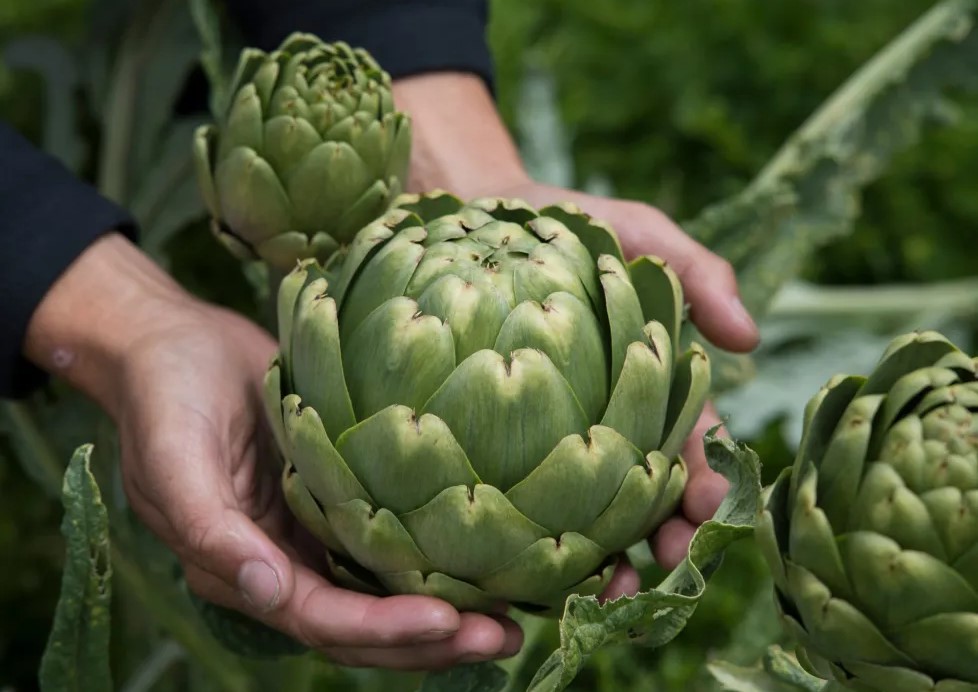Who is the man who named his son after artichoke?
There are plenty of funny stories about artichokes. This is one of them: The man who named his son after an Artichoke.

Famous restaurateur Angelo Valiani, who became rich with the legendary "carciofini sott'olio" (artichoke marinated in oil) dish, wanted to christen his son, who was born after waiting for many years, by naming him "Carciofino" (Artichoke).
Of course, Valiani was embarrassed by the guests when the priest of the church interrupted the baptism ceremony right in the middle by saying "This is not a Christian name, it is the name of a vegetable."
The issue spread to the Vatican. Valiani defended himself by saying that the name of the pope of the period was Leo (Lion), and that if the great state took his name from an animal, then he could very well name his son after his favorite vegetable.
Thus, young Carciofino had the right to be called by this name throughout his life.
So much more;
In 1936, a mafia organization that had a monopoly on the sale of artichokes in New York and did not even hesitate to kill people for this cause collapsed.
Marilyn Monroe, one of the most beautiful women of the century, was able to make a name for herself after becoming Miss California Artichoke for the first time.
Pablo Neruda, one of the greatest poets of our century, even wrote a poem called "Oda a la alcachofa" (In praise of the artichoke). When I researched, I also found many songs composed for artichokes.
In other words, artichoke was effective, delicious, and expensive in every era and everywhere. According to dream interpreters, it is considered a symbol of "Hope, peace, and abundance".
The most beautiful short poem I could find about artichokes was written by the young Portuguese poet Leticia Sodré;
“Há de se enfrentar
uma zona de espinhos
"Money alcançar o coração" he said...
Well;
“You have to face it,
There is a thorny area
to reach the heart.”
I found a funny story about the painter Caravaggio. He gave the artichokes he bought from the market to the cook of the inn where he was staying to cook them. Since the man did not know what to do with this rare vegetable, which he saw for the first time, he fried the artichokes with their shells in oil, flour, and eggs, and wasted them. Caravaggio put the plate of hot artichokes on the man's head. In the police reports kept in the Caravaggio Museum, it is written that the man also filed a complaint and Caravaggio defended himself by saying that he shot 6 expensive artichokes because they made them inedible.
According to ancient Greek mythology, Zeus, the king of the gods, was jealous of his fairy-like lover Kynara and his brother Poseidon, and turned her into a vegetable, thus creating the extraordinarily beautiful artichoke.
So, it has been known almost since prehistory. In his letters, the Roman wise Gaius Plinius Caecilius Secundus describes the artichoke as "one of the seductive things of the world."
It was first collected wild, and then it started to be grown in Spain and Italy for the first time in the early 1400s. It was considered a "noble" food for the tables of the rich and was also used as an aphrodisiac, medicine, and cosmetic.
Since it was believed that eating artichokes would make women beautiful, when Catherine de Medici went to Paris to marry the King of France, Henry II, she took artichokes with her dowry and the French became familiar with the artichoke. They also introduced it to the world.
-------------------------------------------
The man who named his son after an Artichoke
https://medmeanderings.com.au/did-you-know/the-man-who-named-his-son-after-an-artichoke/
